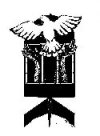Pasko’s wife, Galina Morozova, was quickly expelled from the military courtroom, where she had brought a sack lunch for the prisoner. “I have heard that if the families don’t feed them, they sit hungry all day in court,” she told reporters at the scene. A guard promised to deliver the pizza and burger.
A few days later, Pasko’s attorney Karen Nersesyan was expelled from court, accused of violating trial secrecy by leaking information to reporters.
The trial proceeded slowly, breaking off, then resuming only to recess again, with little news emerging. In April, Pasko first took the stand to defend himself. His documentation of Navy waste dumping was all from public sources, and he acted as a journalist, not a spy.
In May, five Japanese journalists he’d worked with refused to testify on Pasko’s behalf. Prosecutors alleged the journalists were spies and Pasko their agent, so the journalists believed they could be arrested as accomplices to Pasko’s alleged crime if they returned to Russia.
In a deposition at the end of May, Pasko finished his response to the court, denying all the charges.
Pasko has been behind bars now for 18 months, and some believe the military court, which received over 10,000 letters of protest from around the world since the trial began but heard no convincing evidence, will refer the case for further investigation.
For more information about a current urgent action campaign, contact Amnesty International, International Secretariat, 1 Easton Street, WC1X 8DJ, London, United Kingdom.
